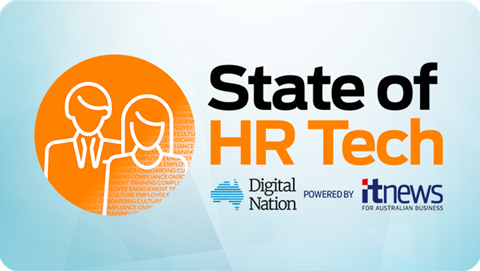COVID-19’s disruption of traditional corporate culture, namely the individual wellbeing of employees, has laid the foundation for a transformation in business practices.
Organisational resilience and operational efficacy have been tested like never before, with the accompanying stress leaving many employees overwhelmed.
Angela Coble, CIO and director of business technology at Johnson and Johnson Australia, says that it became too much for her at points during the pandemic.
Coble says that the build-up of work stress created an emotional pressure cooker that was only a matter of time before it overflowed.
“It wasn't until that fateful week in March, when we were all sent home as a country, that I paused on that Saturday, and burst into tears,” says Coble.
“And my husband looked at me, and he said, I am so pleased that that has finally happened because we've been watching you in this pressure-cooker environment for the last three months. And if that hadn't happened, then he said we would have had to have had an intervention.”
She says that it was this moment that brought a moment of realisation about resilience, leading to her put into place boundaries and resiliency building practices for her and her entire team.
"I put in place some really clear boundaries, some wellbeing rituals, and really did sit back and start to apply in more of a resilience mindset to my own wellbeing."
That still holds fast today, she says.
"It also allowed me to see that moment in others before it happened... I'm looking at all these people around me going 'you're on the same trajectory I was.' You can then act as almost like a well-being coaching and interject before they got to that point, and give some boundaries for them."
Developing these practices through her research into neuroscience and wellbeing theory allowed for an increase in workplace agility and strength in a constantly changing work environment.
Coble believes that in prioritising the wellbeing of employees, leaders must commit to a shift in mindset and valuing conversations in all levels of the business.
Vannessa McCamley, neuroscience for leadership expert and author of Rewire for Success, furthers this sentiment, outlining the changing expectations of CIOs and CTOs.
“At the moment, I believe we've been living in the task epidemic. We’re moving on from one task to another and we're doing that quite quickly. We're not stopping we're not celebrating the wins in between. And that's what's exhausting us,” says McCamley.
“What I think is going to change in the future is that the scale is going to tip and we're going to have to retrain people on how to be able to do the deep thinking…that is the seed to all creativity [and] problem-solving. “
McCamley says that a key to addressing the task epidemic will be AI.
“As we transition further into this digital age that we're living in, we're going to be relying on technology to do a lot of the task. What we're asking people to now be able to do is more the deep-thinking type of things, which is the problem solving the creativity, the innovation, making the right decisions based on the data and information that artificial intelligence will give us.”




_(33).jpg&h=140&w=231&c=1&s=0)






 iTnews Benchmark Awards 2026
iTnews Benchmark Awards 2026
 iTnews Executive Retreat - Security Leaders Edition
iTnews Executive Retreat - Security Leaders Edition
 iTnews Cloud Covered Breakfast Summit
iTnews Cloud Covered Breakfast Summit
 The 2026 iAwards
The 2026 iAwards












_(1).jpg&h=140&w=231&c=1&s=0)



